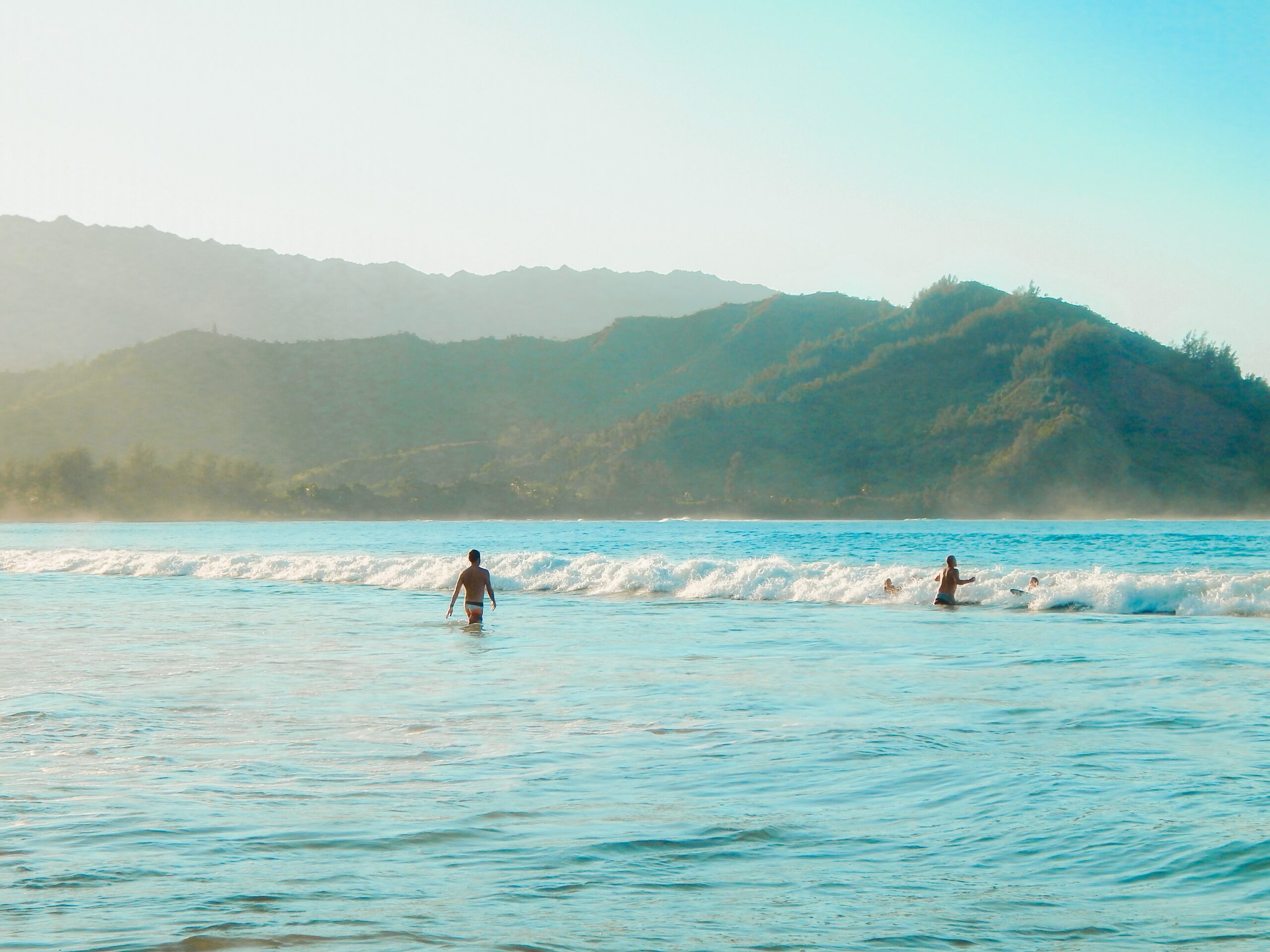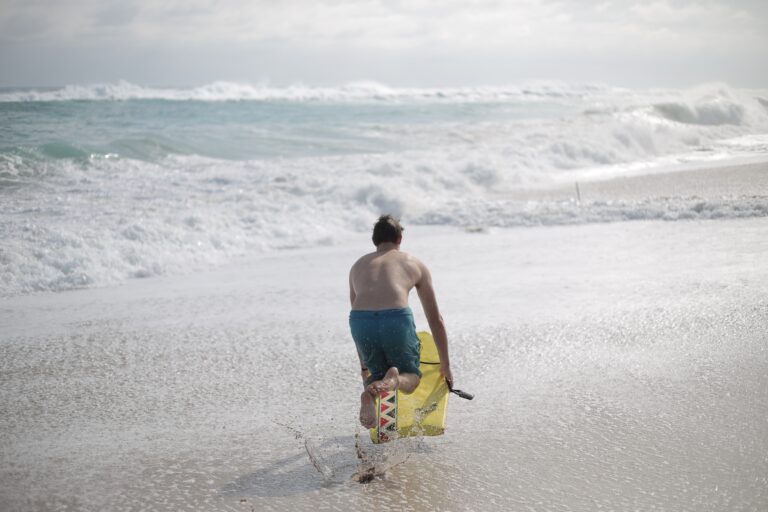Introduction
Welcome to the captivating shores of France, where the Atlantic and Mediterranean coasts beckon surfers with their diverse waves and coastal charm. Join us as we dive into the exhilarating world of surfing in France, exploring the renowned breaks, vibrant surf culture, and the unique experiences awaiting wave riders along these spectacular coastlines.
Surfing Destinations: Biarritz’s Historical Appeal
Biarritz, nestled on France’s Basque Coast, holds an esteemed place in surfing history. Revered as the birthplace of European surfing, this elegant town boasts a rich heritage intertwined with the sport. In the 1950s, Biarritz witnessed the dawn of surfing in Europe when American filmmaker Peter Viertel introduced the sport to the local community. Since then, Biarritz has evolved into a prominent surfing hub, attracting enthusiasts from across the globe.
Hossegor: Europe’s Surfing Capital
Hossegor stands tall as Europe’s surfing mecca, renowned for its powerful waves and vibrant surf culture. Located in the Landes region, Hossegor’s reputation as the continent’s surfing capital is well-deserved. The legendary waves at La Gravière and Les Culs Nus draw professional surfers and amateurs alike. The consistency of these waves, sculpted by underwater sandbanks, creates an ideal playground for surfers seeking adrenaline-fueled adventures.
Consistent Waves and Vibrant Surfing Culture
Both Biarritz and Hossegor offer consistent waves, but each holds its distinct allure. Biarritz presents a diverse array of breaks catering to surfers of varying skill levels. From the gentle waves at Côte des Basques, ideal for beginners, to the powerful barrels at La Grande Plage, experienced surfers find ample opportunities to challenge themselves.
Meanwhile, Hossegor’s reputation as a surfing hotspot stems from its world-class breaks and hosting major surfing competitions like the Quiksilver Pro France. The electric atmosphere during these events pulsates through the town, showcasing not only thrilling wave-riding skills but also celebrating the vibrant culture ingrained in the surfing community.
Visitors to these regions immerse themselves not only in exceptional surfing conditions but also in the laid-back coastal lifestyle. Surf schools, boutique shops, and beachfront cafes line the shores, inviting both surf enthusiasts and curious onlookers to experience the infectious passion for surfing that permeates these coastal towns.

Exploring Mediterranean Surf Spots: Lacanau and Capbreton
The Mediterranean coastline boasts a myriad of surf havens, each offering its own allure and unique waves. Lacanau and Capbreton stand out as vibrant surf destinations, attracting wave riders from around the globe.
Lacanau’s Surf Scene and Laid-back Atmosphere
Nestled on France’s Atlantic coast, Lacanau exudes a relaxed vibe and a thriving surf culture. Renowned for its consistent waves, this seaside town caters to surfers of all levels. Beginners find solace in the gentle rollers at Plage Centrale, while experienced surfers carve through more challenging breaks like La Nord.
Beyond the waves, Lacanau’s charm lies in its laid-back atmosphere. The town boasts a lively promenade dotted with surf shops, cozy cafes, and beachfront bars. Surfers and sun-seekers alike revel in the welcoming ambiance that permeates this coastal gem.
Capbreton’s Charm and Appeal for Diverse Waves
Adjacent to the renowned surf town of Hossegor, Capbreton is a hidden gem offering diverse surfing experiences. Its coastline presents a mix of breaks, from mellow waves ideal for beginners at Santocha Beach to powerful barrels at La Piste, catering to the seasoned riders seeking a challenge.
Capbreton’s allure extends beyond its waves; it embraces a quintessential French coastal charm. The town’s bustling marina, seafood restaurants serving fresh catches, and a picturesque coastline create an irresistible draw for surfers looking to immerse themselves in a vibrant coastal setting.
Unique Characteristics of Surfing in the Mediterranean
Surfing in the Mediterranean holds its own distinct charm. While not as synonymous with surfing as the Atlantic coast, the Mediterranean offers its own delights. The waves here tend to be mellower and more influenced by local winds, creating an inviting environment for beginners to learn and for seasoned surfers to enjoy mellower sessions.
Additionally, the Mediterranean’s cultural richness adds another layer to the surfing experience. Exploring ancient coastal towns, indulging in local cuisine, and soaking in the Mediterranean sun after a surf session offer a unique blend of adventure and relaxation that sets this region apart.
Embark on a Mediterranean surfing adventure, exploring the diverse waves and vibrant coastal cultures that Lacanau, Capbreton, and the surrounding areas have to offer.
French Surf Culture: A Unique Blend
The French surf community embodies a vibrant and eclectic blend, influencing not just the sport but also art, cuisine, and coastal living. With a coastline stretching from the English Channel to the Atlantic and the Mediterranean, France has become a hub for surfing, fostering a dynamic culture that draws surf enthusiasts from around the globe.
Surfing, Art, and Cuisine in Coastal Towns
Coastal towns in France pulsate with the rhythm of the waves and the creative energy of the surf culture. Artistic expressions inspired by the sea adorn walls and galleries, capturing the essence of surfing through paintings, sculptures, and photography. Additionally, the coastal culinary scene mirrors this fusion, offering fresh seafood delicacies and beachside cafes where surfers refuel and share stories after a day on the waves. The convergence of surf, art, and cuisine creates an immersive experience, inviting travelers to indulge in the coastal lifestyle.
Significance in French Coastal Traditions and Events
Surfing has seamlessly integrated itself into the fabric of French coastal traditions and events. Festivals celebrating the surf culture, such as Hossegor’s Quiksilver and Roxy Pro, showcase world-class surfing talent while embracing the local joie de vivre. Moreover, traditional events like the Biarritz Surf Festival underscore the deep-rooted connection between the community and the sport. Surfing isn’t merely a pastime; it’s a cultural phenomenon that brings communities together, preserving coastal heritage and celebrating the waves that shape their way of life.
The French surf culture isn’t just about riding waves; it’s a holistic experience that intertwines sport, creativity, and a deep reverence for the sea. It’s a lifestyle that permeates coastal towns, leaving an indelible mark on those who immerse themselves in its beauty and allure.
Surfing in France: Practical Tips
For surfers planning to catch waves in France, here are some practical tips to ensure an enjoyable experience:
Equipment and Seasons
- Gear Up: Bring or rent a suitable wetsuit and surfboard based on the season and location. In colder months, thicker wetsuits are essential for warmth.
- Seasonal Swells: Prime surfing seasons run from September to April for consistent waves on the Atlantic coast. The summer months offer smaller waves but warmer waters in the South.
Accommodation and Surf Schools
- Coastal Stay: Opt for accommodations close to surf spots. Coastal towns like Biarritz, Hossegor, and Lacanau offer various options from surf camps to beachfront rentals.
- Surf Schools: Consider joining local surf schools or camps for beginners or those looking to improve their skills. Experienced instructors can enhance your surfing abilities and ensure safety in the water.
Embracing the Local Surfing Culture
- Respect Local Rules: Familiarize yourself with surfing etiquette and any specific rules at each surf break. Respect the locals, wait your turn, and avoid crowding the lineup.
- Cultural Immersion: Immerse yourself in the vibrant surfing culture. Enjoy local cuisine, explore coastal towns, and engage with fellow surfers to embrace the laid-back lifestyle.
France’s coastline offers an array of surf breaks catering to surfers of all levels. By packing the right gear, choosing suitable accommodations, and respecting the local culture, surfers can make the most of their surfing adventure in this beautiful country.
Video Credit: Genepifilm
FAQs: Surfing Insights in France
Q. How diverse are the surfing experiences between the Atlantic and Mediterranean coasts in France?
A. The Atlantic coast offers robust waves for experienced surfers, while the Mediterranean presents a milder yet welcoming surfing environment.
Q. Are there specific regions along the French coasts suitable for beginners?
A. Yes, places like Biarritz and Marseille cater to beginners with gentler waves and surf schools.
Q. What makes Corsica a unique surfing destination?
A. Corsica’s blend of cultural heritage and varied surf breaks makes it a captivating choice for surf enthusiasts.
Q. Can tourists rent surfing gear easily in these surfing destinations?
A. Yes, surf shops and rental facilities are abundant, ensuring easy access to surfing equipment for tourists.
Q. How does surfing contribute to the local economy in coastal French towns?
A. Surf tourism significantly supports local businesses, surf schools, accommodations, and the cultural vibrancy of these regions.
Q. Are there any surfing events or festivals celebrated along these coasts?
A. Yes, surfing events like the Biarritz Surf Festival and Mediterranean Surfing Championships highlight the surfing culture in France.



